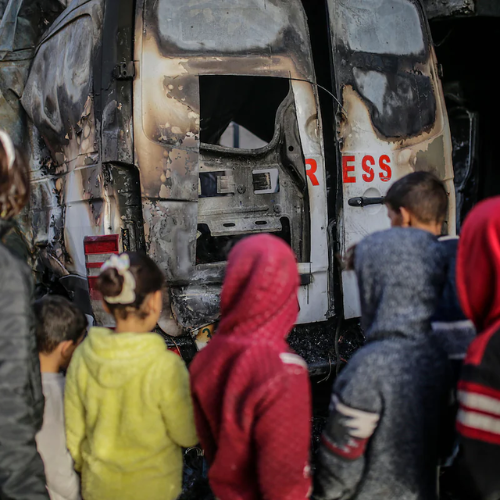On Thursday, Israeli warplanes struck several targets across Yemen, including the country’s largest airport. This airport was where the head of the World Health Organization (WHO) was about to board a plane. The Israeli Defense Forces (IDF) confirmed that the strikes were aimed at military infrastructure, which is used by the Houthi rebels in Yemen. These rebels have been launching missiles at Israel for months, and some have successfully broken through Israel’s air defense system, causing damage and injuries.
The World Health Organization (WHO) chief, who was in Yemen to negotiate the release of United Nations (UN) workers and to assess the humanitarian situation, shared the frightening experience on social media. He explained that while he and his team were about to board their plane, the airport was bombarded. A member of his crew was injured in the strike. Though the WHO chief and his team were not harmed, the damage was significant. He mentioned that the air traffic control tower, the departure lounge, and even the runway were all damaged by the attack. As a result, the WHO team was left stranded at the airport until it could be repaired.
Power Plants and Ports Also Targeted
In addition to the airport, the Israeli military targeted other important locations in Yemen. They struck two major power stations: the Hezyaz power station located south of Yemen’s capital, and the Ras Kanatib power station on Yemen’s west coast. Both the power plants are vital for the country’s electricity supply, and the strikes caused severe damage to the infrastructure.
Furthermore, the Israeli airstrike hit two ports located on the Yemeni coast. These ports are believed to be used by the Houthis to smuggle weapons and people from Iran, a country that supports the Houthi rebel movement. Israel’s military has accused the Houthis of using these ports for military purposes, including bringing in resources to fight against Israel.
The Houthi Rebels’ Ongoing Attacks
The Houthi rebels, who control large areas of Yemen, have been attacking Israel, as well as Western shipping and naval vessels in the Red Sea. Their attacks are a part of their ongoing support for the Palestinian people and their opposition to Israel’s actions in Gaza. The Houthis have vowed to continue their attacks on Israel until Israel halts its military operations in Gaza.
Just last week, one of the missiles launched by the Houthis hit near Tel Aviv, injuring at least 16 people. Another missile damaged a school in a suburb of Tel Aviv, although no one was hurt in that strike. The Houthis see their attacks as a form of solidarity with Palestinians, but their actions have also escalated the conflict in the region, drawing in neighboring countries like Israel.
US Hits Hard: Sanctions Target Iran and Houthi Networks
International Notifications and Military Involvement
Before launching the airstrike on Yemen, Israel informed the United States about its plans. A source familiar with the matter confirmed that Israel notified the U.S. military ahead of time, but the United States did not participate in the attack. The United States was aware of Israel’s military operation, but it did not provide direct assistance in carrying it out. The Israeli military confirmed the airstrikes but did not comment on whether it was aware of the WHO chief’s presence at the airport at the time of the strike.
This series of events comes amid the ongoing conflict between Israel and the Houthi rebels, whose attacks continue to affect not only Israel but also the wider Middle East region. The attacks on airports, power stations, and ports are a reminder of the complex and escalating situation in Yemen and the broader Middle East conflict.


